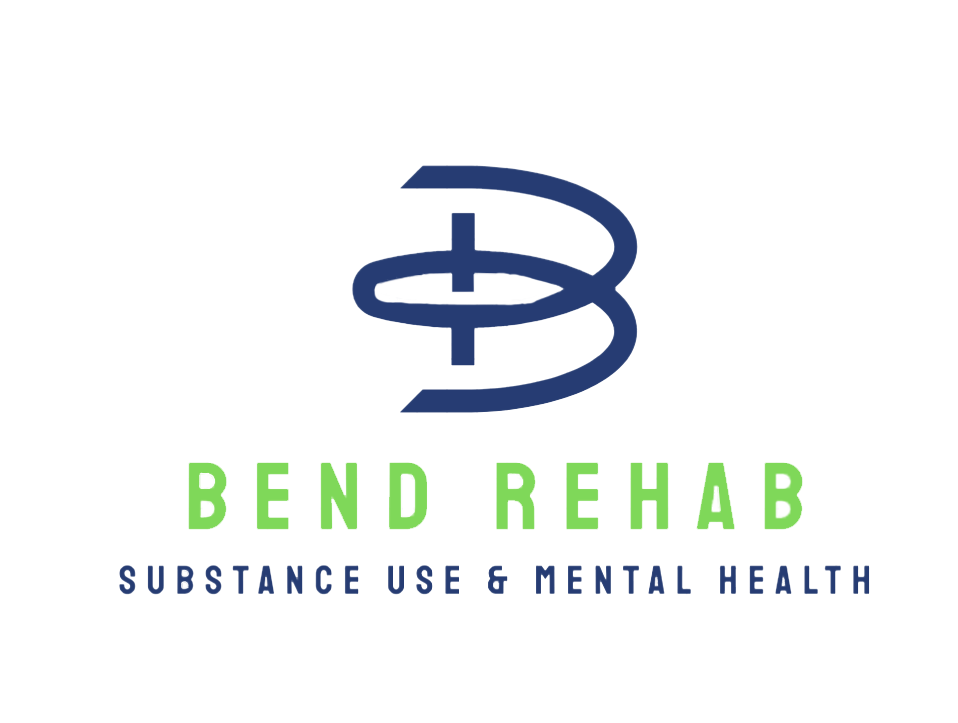Bend Oregon Rehab Facilities
Addiction is a complex and challenging condition that affects not only the individual struggling with it but also their families, friends, and the greater community. It often creates a sense of isolation and hopelessness, making it difficult for individuals to take the first step toward change. However, deciding to seek help is an incredibly courageous and vital milestone on the path to recovery. While the journey may seem daunting at first, the encouraging news is that there are many treatment options available, each designed to provide comprehensive support as individuals work toward healing and achieving long-term sobriety. Bend Oregon Rehab Facilities specialize in offering a wide range of programs that are tailored to meet the unique needs of every individual. These programs are created with the understanding that addiction is not a one-size-fits-all condition. Each person’s struggles, experiences, and goals are different, and the treatment plans reflect a personalized approach to ensure the best possible outcomes. From residential treatment programs and outpatient services to aftercare support and therapy, Bend’s facilities aim to cover all aspects of recovery.
Whether someone is taking their very first steps on the road to recovery or seeking renewed support after previous attempts, these facilities are committed to walking alongside them every step of the way. With a compassionate, professional team and a variety of evidence-based treatment options, individuals and their families can find the resources they need to rebuild their lives and create a brighter, healthier future.
Types of Treatment Offered at Bend Oregon Rehab Facilities:
1. Inpatient/Residential Treatment
For individuals struggling with severe addiction, co-occurring mental health disorders, or those who need a stable and highly structured environment to begin their recovery journey, inpatient treatment is often the most effective option. This type of care provides 24/7 support, professional supervision, and a safe space free from external triggers, allowing individuals to focus entirely on their healing and develop the tools they need for long-term sobriety.
How it works:
- Clients reside in the facility full-time, 24/7, for a designated period, which typically lasts anywhere from 30 days to several months. During this time, they receive structured care, support, and access to various programs designed to address their specific needs and promote long-term well-being.
- They participate in individual counseling sessions to address personal challenges, peer-supported group therapy to share experiences and foster a sense of community, and educational workshops designed to build essential life skills such as communication, time management, and problem-solving.
- Recreational and wellness activities—such as yoga, mindfulness practices, and outdoor excursions—play a vital role in enhancing the recovery process. These activities not only promote physical health but also help reduce stress, improve mental clarity, and foster a sense of inner balance, making them an essential part of a holistic healing journey.
With constant support and limited temptations, inpatient treatment maximizes focus and safety during the critical early stages of recovery.
2. Outpatient Treatment
Outpatient programs are designed for individuals who cannot commit to full-time care but remain dedicated to their recovery journey. These programs provide flexibility, allowing participants to attend therapy sessions, counseling, and support groups while continuing to live at home. This approach is ideal for those who are balancing work, family responsibilities, or other obligations, as it offers a structured path to recovery without disrupting their daily lives. Outpatient care ensures that individuals can access professional support and resources while maintaining their independence and fulfilling their personal commitments.
What’s included:
- Scheduled therapy sessions, which are typically held 1–3 times a week, depending on the individual’s needs and treatment plan, providing a consistent opportunity to work towards personal goals and mental well-being.
- Access to counseling services, including evidence-based approaches like cognitive-behavioral therapy (CBT) for addressing negative thought patterns and dialectical behavior therapy (DBT) for managing emotional regulation and interpersonal challenges.
- Flexibility to manage and balance your day-to-day responsibilities, ensuring you can stay on top of both personal and professional commitments.
Outpatient care enables clients to apply new coping strategies in real-world settings, with support from therapists and peers.
3. Intensive Outpatient Programs (IOPs)
Intensive outpatient programs offer a middle ground—providing more structure and support than traditional outpatient care while being less restrictive and more flexible than inpatient programs. These programs are ideal for individuals who need a higher level of care but also want to maintain their daily responsibilities, such as work, school, or family obligations.
What to expect:
- Clients attend therapy sessions several hours a day, multiple days a week, allowing them to receive consistent support and work intensively on their goals in a structured environment.
- The ongoing schedule provides structure and consistency, helping individuals reinforce important coping skills, stay focused on their recovery journey, and build a solid foundation for long-term progress.
- Similar to outpatient programs, clients continue to live at home, allowing them to maintain their daily routines and responsibilities while receiving additional support and guidance tailored to their needs.
IOPs bridge the gap for those who need more hands-on care without the commitment of residential treatment.
4. Partial Hospitalization Programs (PHPs)
Partial hospitalization programs offer a structured and intensive level of care similar to inpatient treatment, but with the added benefit of allowing individuals to return home each evening. These programs are designed to provide comprehensive support, including therapy, counseling, and medical oversight, while enabling participants to maintain connections with their home environment and daily responsibilities.
Key highlights:
- Highly structured, treatment typically involves intensive sessions lasting 6–8 hours daily, often five days a week, providing comprehensive care and support for individuals who require focused intervention.
- Includes comprehensive medical support, personalized therapy sessions tailored to individual needs, and engaging skill-building workshops designed to enhance personal growth and independence.
- Perfect for individuals transitioning from inpatient care to independent living, providing the support and resources needed to help them adjust to a more self-sufficient lifestyle.
PHPs balance the need for focused treatment with the benefits of spending evenings in a supportive home environment.
5. Sober Living Homes
Sober living homes are invaluable for individuals transitioning back to daily life after completing a rehab program. These homes provide a structured, supportive environment where residents can focus on maintaining their sobriety while gradually reintegrating into society. With rules designed to promote accountability and a community of peers sharing similar goals, sober living homes help individuals build healthy routines, develop life skills, and establish a strong foundation for long-term recovery.
Features of sober living homes:
- A safe, substance-free environment governed by structured house rules designed to support recovery and accountability. These rules include mandatory curfews to encourage a stable routine, regular attendance at group or individual meetings to foster community and progress, and random drug tests to ensure a commitment to sobriety and a supportive living space for all residents.
- Opportunities to build accountability by maintaining a steady job or participating in meaningful volunteer work, fostering responsibility and personal growth.
- Receive peer support from others who are also living in recovery, offering shared experiences, understanding, and encouragement to help you on your journey.
Being surrounded by others who share the same goals creates a strong foundation for ongoing sobriety.

Choosing the Right Treatment
There’s no universal solution for addiction recovery—what works for one person may not work for another. Recovery is a deeply personal journey, and selecting the right type of treatment requires careful consideration of various factors. These include the severity of addiction, the presence of any co-occurring mental health conditions such as anxiety or depression, personal responsibilities like family or work obligations, and the strength of existing support systems. Each of these elements plays a crucial role in determining which approach will be most effective. Consulting with experienced professionals at Bend Oregon rehab facilities can help individuals navigate these choices and find the most suitable treatment program. These experts can evaluate a person’s unique needs and guide them toward a recovery plan tailored specifically to their circumstances. Many clinics also offer initial assessments, providing a starting point for prospective clients to better understand their options and begin building a personalized care plan. Whether it’s outpatient counseling, inpatient care, or a combination of therapies, the right support can significantly improve the chances of long-term recovery and a healthier, more fulfilling life.
Why You Should Seek Treatment at Bend Oregon Rehab Facilities:
1. Experienced and Compassionate Staff
Bend Oregon rehab facilities are staffed by licensed professionals who specialize in addiction recovery and mental health treatment. These dedicated experts provide personalized care, tailoring treatment plans to meet the unique needs of each individual. Their extensive training ensures a high standard of care, while their compassionate approach creates a supportive environment where patients can feel safe and encouraged. From detox and therapy to aftercare planning, these facilities are committed to helping individuals achieve long-term recovery and regain control of their lives.
2. A Stunning and Serene Location
Nestled in the heart of Oregon’s natural beauty, Bend offers an unparalleled environment for personal growth, reflection, and healing. Surrounded by breathtaking landscapes, the area features countless hiking trails, lush forests, and serene, tranquil surroundings that create the perfect backdrop for recovery. The crisp mountain air and abundant sunshine not only enhance physical activities but also foster mental clarity and emotional renewal. Whether you’re exploring the scenic Deschutes River, taking a peaceful walk through the towering pines, or simply enjoying the stillness of nature, Bend provides a calming and restorative experience that supports overall well-being.
3. Customized Treatment Plans
Recognizing that no two individuals are the same, Bend Oregon rehab facilities focus on crafting personalized treatment plans tailored to each person’s unique needs and circumstances. These plans are carefully designed using a holistic approach that considers not only physical health but also emotional well-being, mental health, and lifestyle factors. By addressing the whole person, these facilities aim to provide comprehensive care that supports long-term recovery and empowers individuals to rebuild their lives with confidence and resilience.
4. A Holistic Approach to Recovery
Many facilities incorporate a variety of therapeutic activities, including meditation, exercise, nutritional guidance, and creative therapies such as art and music, to complement traditional therapeutic approaches like counseling and cognitive behavioral therapy. Meditation helps individuals reduce stress and develop mindfulness, while exercise promotes physical health and mental well-being. Nutritional guidance ensures proper diet and energy levels, which are essential for recovery. Creative therapies, like art and music, allow individuals to express emotions and explore new outlets for coping. This comprehensive approach addresses both the mind and body, empowering individuals to rebuild their lives in a balanced, holistic, and sustainable way.
5. Aftercare and Long-Term Support
Treatment doesn’t stop once rehab ends; it’s just the beginning of a lifelong recovery journey. Ongoing aftercare programs, such as alumni support groups, relapse prevention training, and continued access to experienced counselors, play a vital role in maintaining long-term sobriety. These programs provide individuals with the tools, guidance, and support needed to navigate life post-rehab, helping them stay accountable and connected to their recovery community. By addressing the challenges of everyday life and offering a network of people who understand the journey, aftercare programs empower individuals to build a stable, fulfilling life in recovery while reducing the risk of relapse.
Conclusion
The road to recovery is challenging, but with patience, determination, and the right support, it’s absolutely possible. Every individual’s journey is unique, which is why having a plan and environment tailored to your specific needs is so important. Bend Oregon rehab facilities offer a variety of treatments designed to address different stages of recovery. From intensive inpatient programs to outpatient care and sober living homes, there are options to meet people where they are in their journey. These facilities prioritize creating a safe, supportive space where individuals can focus on healing and rebuilding their lives. Struggling with addiction can feel overwhelming, but it’s important to remember that you’re never alone in this fight. Reach out to our compassionate staff today by calling 1 (541) 802-7214 or clicking Bend Rehab. Bend is home to compassionate, experienced professionals who utilize evidence-based approaches to guide and support you. Set against the serene backdrop of Bend’s natural beauty, these facilities provide an ideal setting for reflection, growth, and healing. Whether you’re seeking detox services, therapy, or long-term recovery planning, Bend’s rehab centers are equipped to help you take back control of your life. Don’t wait to begin this new chapter—it starts with one call.




